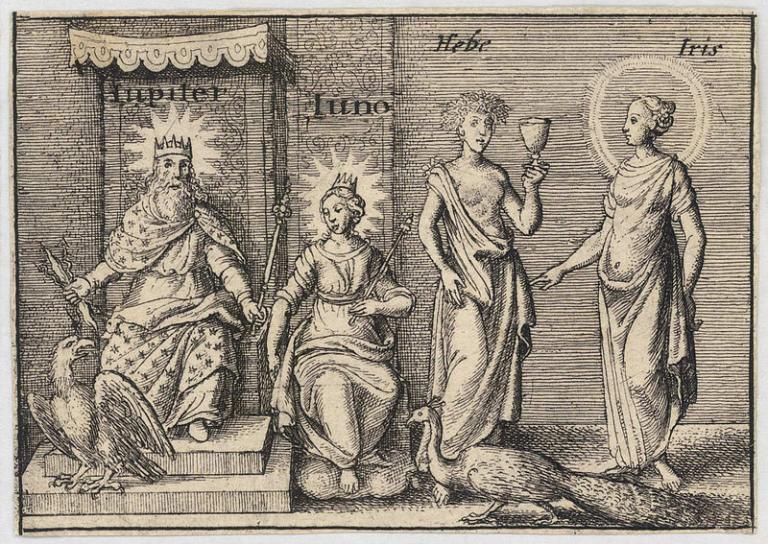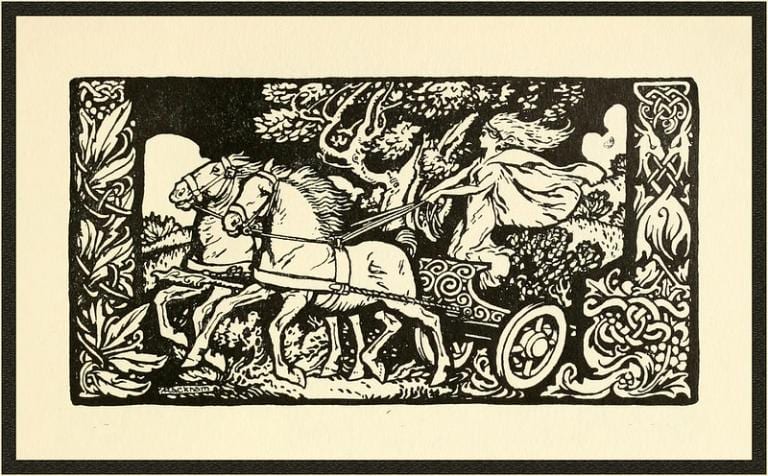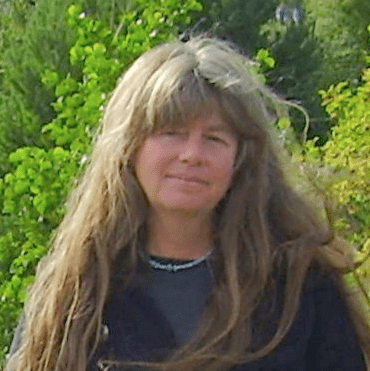On at least a weekly basis I see people asking which Celtic god is like Zeus or who is the Irish equivalent of Loki. No. Just stop it. Also, why? How would answering this make your life, or your relationship with a deity, better?
In my experience, Celtic deities don’t show a great inclination to follow a seating arrangement or have clear family trees. I hesitate even to use the word “pantheon”, which by its Greek origins implies a level of organization the Celtic gods don’t have. In truth, it’s very hard to know what Celtic deities are at all.

It’s easy to play this game between Greek and Roman gods, because the Romans took on the Greek system almost wholesale, and simply renamed everyone. Zeus became Jupiter, Demeter was named Ceres, etc. but their stories and functions didn’t change very much. Maybe that’s why people want to do this. Because somewhere in a mythology book they saw it done with the Greek and Roman deities. Undoubtedly, the Celtic gods came from somewhere, but they weren’t borrowed and copied from another culture like a set of chess pieces.
Maybe it’s a legacy of the narcissistic Romans doing the same thing with the deities of other cultures. But here’s the thing: it doesn’t work! It didn’t work for the Romans – who busily pounded round pegs into square holes and called it “close enough”, and it doesn’t work now. Yes, there is some cross-pollination between Celtic and Roman, or Celtic and Norse, culture. Most of it happened after their systems of deities were already formed, though. Do they have common antecedents further back in time? Of course, and this means there are connections to Hindu religion, too. But that doesn’t mean that by the Iron Age there was still much commonality. There’s interesting material here for academic study, but I’m struggling to see a practical use as far as honouring the gods.
Look at it from their point of view. I don’t know about you, but I would get frustrated with someone who constantly tried to reach my cousin by dialing my phone number. I wouldn’t appreciate someone thinking that because the bus driver in the last town they lived in was called Linda, that they should call me Linda because I drive a bus. I don’t appreciate men expecting me to be like their last partner.
Deities are individuals. They are not primarily academic exercises, or potential characters for your fantasies. If you are trying to find your Pagan path or trying to build a relationship with a deity, then look at that deity. Read their myths if any survive. Consider their attributes as they are understood in their own culture. Don’t worry about comparative mythology.
Celtic deities are confusing! This might help:
https://www.youtube.com/watch?v=_piVyrtdExk&feature=youtu.be
Even within the various Celtic cultures it is difficult to be sure about cognates and comparison. The Gaulish Lugos seems to be the Irish Lugh, and probably the Welsh Lleu – but Lleu’s story has little in common with Lugh’s, and Gaulish mythology hasn’t even survived. Some Celtic polytheists may honour them all as one god; many don’t feel comfortable doing that. So please don’t ask me to conflate Him/Them with Mercury like the Romans did!
Celtic myths are often weird and convoluted, resulting in deities with surprising collections of attributes. Their relationships to one another are shadowy, depending on which story, or version of a story, you read. And that’s okay. Celtic mythology lacks a clear creation story, or explicit discussion of the afterlife. Most of the hero-gods have a lot of anti-hero moments, and the goddesses often have a hard edge and a tough core. They can drive their own battle chariots. They can make and discard kings.

Not that there aren’t complex characters and convoluted plotlines in the mythology of other cultures. Of course, there are. But surely that’s even more reason to stop playing the game of trying to make them all line up according to rank, or height, or days of the week!
Sometimes, we ask questions that mask what we really want to know. I’m not sure what’s behind this kind of question, which is why I can only say – what purpose would it serve, if I could give you an answer? If you think I’m being silly and these questions are important to you, and you want to tell me why in the comments, please do! Maybe I’m missing something.
Kris Hughes will be offering an online class entitled Introduction to Celtic Myths and Deities, starting in November. You can also support her work on Patreon.


















